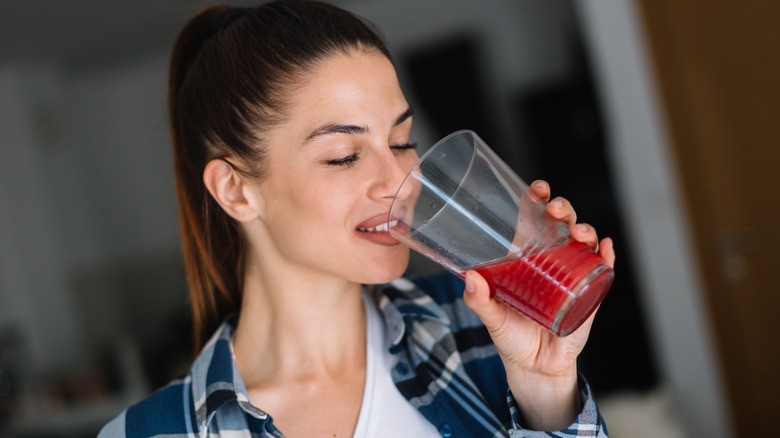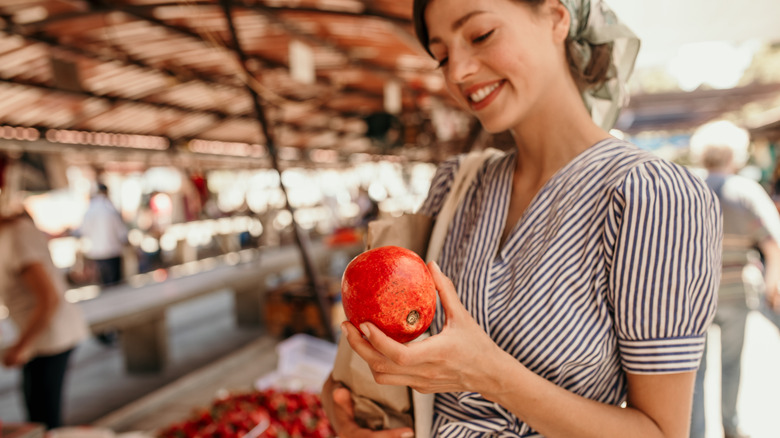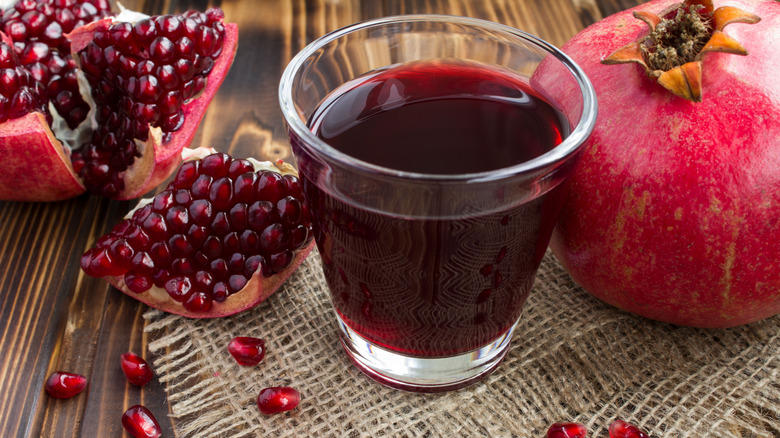If You Don't Drink This Fruity Beverage, Your Early Death Risk Increases
Avoiding disease, premature aging, and death are some things that most of us are interested in. The goal, it would seem, is to live whatever years we have left on this Earth as healthily as possible.
To this end, science has touted the benefits of many foods that can prevent early death. We're talking healthy fats, lots of fruits and vegetables, whole grains, nuts and seeds, and lean protein. There's also research on habits that increase your chances of dying early, like not getting enough sleep or leading a largely sedentary lifestyle.
Turns out, there's a sweet and tart addition to your list of beverages if you want to prevent premature death – pomegranate juice. Packed full of antioxidants and anti-inflammatory properties, this bright red fruit is thought to have originated in Iran, southwest Pakistan, and areas of Afghanistan. It's a rich source of potassium, magnesium, flavonoids, and tannins. Pomegranates have been linked to combating free radical damage in your body, fighting cancer, preventing and treating neurodegenerative disease, lowering blood pressure, and improving memory, among other benefits. Let's take a look at how some of these (and more) translate to mitigating an early death risk.
Pomegranate's connection to preventing premature death
According to a 2016 study published in the journal Nature Medicine, a certain molecule found in pomegranates – urolithin — has the ability to transform gut microbes in such a way that it boosts the natural ability of our cells to recycle something called mitochondria. Mitochondria are considered the powerhouses of cells, meaning they generate the energy needed for various cellular processes and their survival. Degrading mitochondria – something that happens with aging – is thought to be related to weakening muscles and age-related diseases like Parkinson's, per Science Daily. While Parkinson's disease in itself is not fatal, health complications that arise with this neurodegenerative disease could reduce a person's life expectancy.
Additionally, phytocompounds found in pomegranate were associated with preventing the development of various chronic diseases, including metabolic disorders and cardiovascular diseases, according to a 2021 study published in the International Journal of Functional Nutrition. Consuming just half a glass of pomegranate juice along with a handful of dates can offer significant protection against atherosclerosis, which is a risk factor for heart attack or stroke, per a 2015 study published in Food & Function. Heart disease is thought to be the leading cause of death in the U.S.
Speaking of causes of death, pomegranate can offer protection against the second-leading cause of death too — cancer, per a 2015 study published in Oxidative Medicine and Cellular Longevity. Polyphenols found in the fruit were thought to suppress cancer cell growth and inhibit spread of the disease.
How and why you should drink pomegranate juice
There's more than one way to consume pomegranate, and juicing the fruit is just one route. You can throw pomegranate seeds into fruit salads and regular salads, consume the arils (minus the pith), add them to breakfast foods like yogurt and oatmeal, or even use them in grilled meat dishes.
On the liquid side of things, a serving of pomegranate juice a day is considered safe and healthy for most people. You start by removing the part of the fruit that resembles a crown and then slicing the pomegranate into sections. Extracting the arils from the rest of the fruit is when things get tricky. Juice can squirt everywhere so you may want to avoid doing this with a white t-shirt on. Placing the sliced fruit in a bowl of cold and clean water can help make the process a lot less messy. After you've separated the arils, you toss them in a blender and mix until you're happy with the consistency. Using a strainer, separate the pulp from the juice and enjoy.
Making the juice at home means you know exactly what goes into it. You don't want any added sugars and preservatives that will take away from the benefits of consuming this juice. Be mindful, however, if you have kidney disease. The potassium content in the fruit could be of concern depending on what stage of kidney disease you're on. Pomegranates aside, there is a popular spice that decreases your risk of early death too. You can't have too many such foods.


